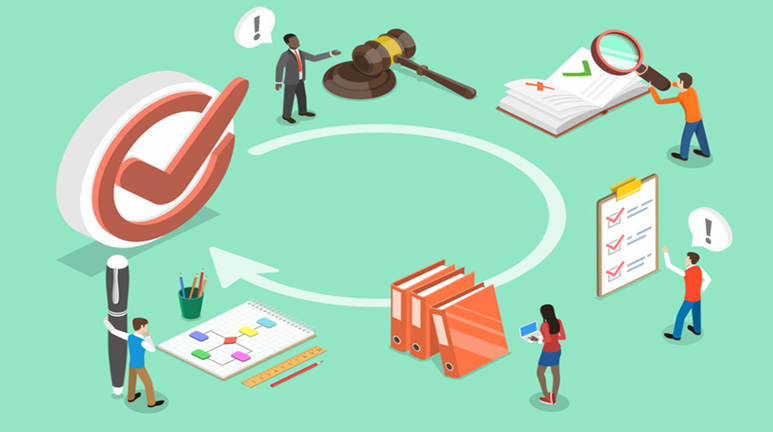Currently Empty: $0.00
About Course
Introduction
Fixed assets and inventory managements policy are important aspects of the business.
Fixed assets tend to be high in value, so more fixed assets help raise a company’s valuation and expand its access to capital. fixed assets that bring benefits to a business and are reflected in financial statements and tax returns.
Fixed asset management is the process of tracking and maintaining physical assets such as buildings, machinery, and equipment. Fixed asset management includes tasks such as keeping track of asset location, monitoring asset condition, and scheduling asset maintenance. By properly managing its fixed assets, a business can minimize disruptions, save money, and improve its overall efficiency.
Inventory management refers to the process of storing, ordering, monitoring the inventory movements, counting and selling of goods and services. The discipline also involves the management of various supplies and processes.
Good inventory and fixed assets management will comply with objective of the internal control system for safe garding the assets of the company.
Objective of the Training
The main objective of this training was to act as a refresher for the company personnel from different internal related departments such as Finance Department and department managers etc on best practice of inventory ans fixed asset managements. With the view of this, this training is designed to help the staff and managers of Finance, and other managers of relevant departments to have an update and insight technical knowledge of fixed asset and inventory management policy through applying this procedures to improve Internal control system for fixed assets and inventory.
Content of Training and Dates
Session 1 –inventory management policy
| No. | Session one | Date |
| 1. | PRE-ASSESSMENT A | 25/10/2023 |
| 2. | INTRODUCTORY SESSION ON INVENTORY CONTROL MANAGEMNETS | 25/10/2023 |
| 3. | INVENTORY CONTROL MANAGEMENT | 25/10/2023 |
| 4. | BENEFITS OF GOOD INVENTORY MANAGEMENT | 25/10/2023 |
| 5. | OBJECTIVES OF INVENTORY MANAGEMENT | 25/10/2023 |
| 6. | PURCHASING CYCLE OF INVENTORY SYSTEMS | 25/10/2023 |
| 7. | WAREHOUSE/STORE INVENTORY SYSTEM CONTROLS | 25/10/2023 |
| 8. | INVENTORY EVALUATION | 25/10/2023 |
| 9. | USABLE INVENTORY AND OFFICE SUPPLIES CONTROLS | 25/10/2023 |
| 10. | INVENTORY COUNT PROCEDURES | 25/10/2023 |
| 11. | CASE EXAMPLE OF INVENTORY COUNT INSTRACTIONS –MURRAY COMPANY | 25/10/2023 |
| 12. | POST -ASSESSMEN | 25/10/2023 |
Session 2- fixed asset management policy
| No. | Session Two | Date |
| 1. | PRE-ASSESSMENT | 26/10/2023 |
| 2. | INTRODUCTORY SESSION ON FIXED ASSETS MANAGEMENTS | 26/10/2023 |
| 3. | OBJECTIVES OF FIXED ASSETS MANAGEMENTS POLICY | 26/10/2023 |
| 4. | ROLE OF FINANCE MANAGER | 26/10/2023 |
| 5. | ASSETS CONTROLS | 26/10/2023 |
| 6. | DEFINITION OF ASSETS | 26/10/2023 |
| 7. | CONTANT OF THE FIXED ASSET REGISTER | 26/10/2023 |
| 8. | DONATED ASSETS | 26/10/2023 |
| 9. | INTANGIBLE ASSETS | 26/10/2023 |
| 10. | CAPITALISATION CRITERIA OF PPE | 26/10/2023 |
| 11. | CALCULATION OF CAPITALISATION COST OF ASSETS | 26/10/2023 |
| 12. | RESIDUAL VALUES | 26/10/2023 |
| 13. | DEPRECIATION OF ASSETS | 26/10/2023 |
| 14. | BUDGET REQUIREMENT | 26/10/2023 |
| 15. | DISCLOSURE REQUIREMENTS | 26/10/2023 |
| 16. | REVALUATION OF ASSETS | 26/10/2023 |
| 17. | DISPOSAL OF ASSETS | 26/10/2023 |
| 18. | IMPAIRMENT LOSSES | 26/10/2023 |
| 19. | INVESTMENT PROPERTY | 26/10/2023 |
| 20. | REPLACEMENT STRATEGY | 26/10/2023 |
| 21. | ASSET RISK MANAGEMENT | 26/10/2023 |
| 22. | MAINTENANCE OF ASSETS | 26/10/2023 |
| 23. | GENERAL REQUIREMENTS | 26/10/2023 |
| 24. | POST -ASSESSMENT | 26/10/2023 |
Training Methodology
Using technical and subject matter experts to conduct the training using state of art training methods and approach
Relevant, clear and concise training material
Interactive group excursive and discussions
Group exercise and group presentation
Pre and post-assessments to gauge knowledge and skills gained during training
Course Content
Pre-Assessment
-
Pre-Assessment




